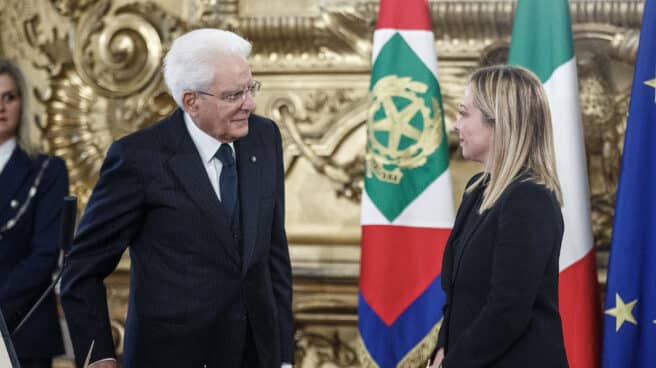

President Sergio Mattarella with Italian Prime Minister Giorgia Meloni at the Quirinal.
An important event has just ended in Italy on May 22: the 150th anniversary of the death of the great writer Alessandro Manzoni. Although this event did not receive the most important attention due to the damage caused by hurricanes and floods in Emilia Romagna, a public commemoration presided over by the President of Italy, Sergio Mattarella, left behind a long speech that went beyond the literary question. Manzoni, in addition to being a writer, was a prolific politician who advocated the unification of Italy, and even as a staunch Catholic, he drew criticism from ecclesiastical circles.
Mattarella recalled that there is nothing more pernicious than those theories that sacrifice human rights for the sake of the state.
In the second part of his speech, where the ideas of the prolific writer were exalted, Mattarella recalled that there is nothing more vile than those theories that sacrifice the rights of people for the sake of the state. And this brotherhood must lead with truth and not with falsehood, with tolerance and not with hatred, with mercy and not with violence, and with morality and not with expediency. In the midst of the migration debate, this is still a wake-up call for the Italian right from the President of the Republic. And that Mattarella’s speech was a reminder of the values that founded Italy and then the Italian Republic.
On the one hand, he recalled that Manzoni’s values of freedom, justice, equality and solidarity formed the basis of the Universal Declaration of Human Rights of 1948, and on the other hand, the human being as a subject of rights without the concept of superiority, based on race or constancy, nor on the predominance the strongest, which formed the basis of the republican constitution.
President Mattarella mentioned that Manzoni also spoke in his work about the difference between power and public opinion, between justice and feelings, as well as the dangers that democratic societies face in the face of social media misinformation, and that electoralism slows down the building of a great politicians. , range.
Georgia Meloni, the head of government, now has two crusades on the table, the first is for the European Union to buy her speech on managing migrants. Secondly, to carry out constitutional reform to change the Republican Constitution of 1948.
The role of Italy is still important at the business level in the energy issue with Africa, but not so much its political weight, since Spain and Italy, despite the Algerian reaction to Morocco, are more or less equal on the level of energy supply. And from there, Mattarella’s speech was down to the millimeter, because the current political debate revolves around changing the republican constitution to change the political system from parliamentary to presidential and to suppress the ideal two-chamber, the use of social media for disinformation campaigns, and the use of the state’s reason for everything.
While Meloni’s popularity is off the charts, the truth is that no prime minister has come out victorious when faced with Republican intricacies. Matteo Renzi He was also very popular in 2016, and the constitutional reform referendum he proposed received 59% of the vote against. Here is a curious fact, namely that those who opposed Renzi’s reform now want to do the same, and we shall see if they succeed in approving it.
The issues that Mattarella raised in his speech on Manzoni’s death are those that, once the reconstruction of Emilia-Romagna begins, will become the axes of Italian politics. In other words, constitutionalism, issues of public liberties, judicial reforms, the role of disinformation, which is already a community problem, how much electoralism slows down government, and the issue of solidarity between states. Let’s remember that Meloni is a strong supporter of helping Ukraine and bringing the country into the European Union, but she has a stone in her shoe that is her coalition partners. Consider the position of Forza Italia or Lega against the Russian invasion of Ukraine.
In conclusion, we note that the anniversary of Manzoni’s death may be the beginning of a new political cycle in Italy. Although he was wary of the tragedy of the flood, it was in the discretion behind the bureaucratic scenes that Italian politics of the last 75 years was nurtured. The restoration of Emilia-Romagna is a major issue not only for Italy, but also for Europe, as the use of European funds continues to be an example of interstate solidarity. But reconstructions always raise political issues that have not been raised or raised for a long time. We’ll have to keep an eye on Roman affairs.
Guillem Purses PhD in Law, Master of Security, Specialist in Conflicts, Public Security and State Theory. His articles can be read here at www.elindependiente.com.
Source: El Independiente